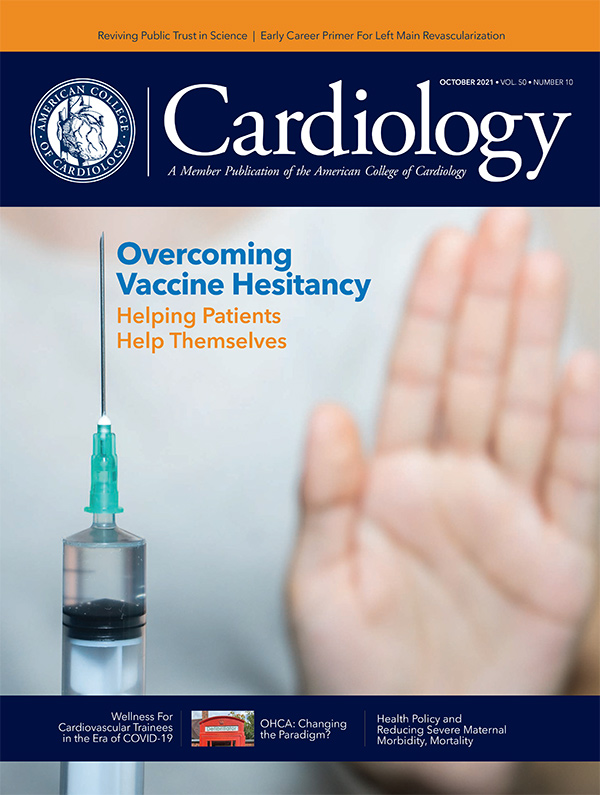Journal Wrap

The hottest research from various peer-reviewed journals – handpicked weekly by the ACC.org Editorial Board led by Kim A. Eagle, MD, MACC.
LAAO Registry Study Shows Women at Higher Risk of Adverse Events After LAAO Procedure
Women may have a significantly higher risk of in-hospital adverse events following left atrial appendage occlusion (LAAO), according to a study published in JAMA Cardiology.
Meta-Analysis Looks at Prevalence of COPD in AFib
Chronic obstructive pulmonary disease (COPD) is common in patients with atrial fibrillation (AFib), with an estimated prevalence of 13%, according to a large meta-analysis of nearly 50 international studies published in the European Heart Journal.
The AF-COMET International Collaborative Group reviewed data from more than 4.2 million patients with AFib to assess the prevalence of COPD, and its impact on clinical management and outcomes. The use of beta-blockers and associated impacts were explored.
COPD was associated with a greater number of comorbidities, older age, and higher CHA2DS2-VASc scores. COPD increased the risk of worse outcomes in AFib patients, including a twofold higher risk of all-cause mortality, increased risk of CV death and major bleeding. Beta-blockers were less frequently prescribed in patients with COPD and AFib but were not associated with increased risk of adverse outcomes.
Romiti GF, Corica B, Pipitone E, et al. Eur Heart J 2021;42:3541-54.
NCDR Research: Non-Evidence-Based ICD Implantation Associated With Increased Risk of Mortality, Readmissions
Patients who received non-evidence-based ICDs for primary prevention had an increased risk of mortality and hospitalization, according to a study published recently in the American Journal of Cardiology. Researchers observed the greatest increase in risk occurred within the first year of device implantation.
The retrospective analysis evaluated data from 71,555 ICD implantations identified in ACC's EP Device Implant Registry, formerly the ICD Registry, and linked to Medicare fee-for-service administrative claims data between April 2010 and December 2013. Of these, 9,609 (13.4%) were categorized as non-evidenced based, defined as primary prevention-based implantation in patients with recent myocardial infarction (MI) or coronary revascularization and those with newly diagnosed or severe heart failure (HF). Usama A. Daimee, MD, et al., used multivariable time-to-even analyses to compare longitudinal outcomes, including all-cause mortality and all-cause hospital readmissions, over an average of 4.75 years following ICD implantation.
Overall results found that patients receiving non-evidence-based ICDs had greater mortality risk at 90 days and at one year compared with those receiving evidence-based ICDs. Mortality risk was similar across both groups at three years. Similarly, patients in the non-evidence-based ICD group had a greater risk of all-cause hospital readmissions at 90 days; however, researchers noted the difference in readmission risk between the evidence-based and non-evidence-based groups decreased at one year and three years.
"The increased risk of mortality and hospitalization in patients with non-evidence-based ICDs was observed early in follow-up and largely in patients with NYHA Class IV symptoms and those with MI within 40 days," said Daimee and colleagues. "These findings may help guide shared decision-making for ICD implantations, particularly for severe HF patients and those recovering from a recent MI."
Daimee UA, Aslam F, Parzynski CS, et al. Am J Cardiol 2021;155:64-71.
Keywords: ACC Publications, Cardiology Magazine
< Back to Listings


